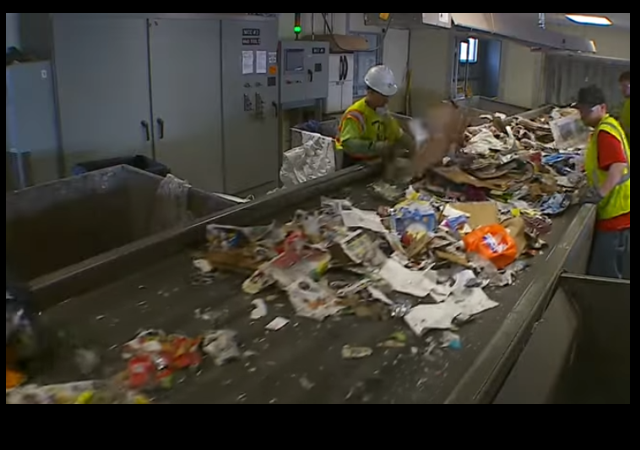Erina Brown is the study’s lead researcher, which was conducted at the University of Strathclyde in Glasgow, Scotland. She noted how the microplastics are potentially problematic to the environment.
Unfortunately, this new mania is likely to have regulatory consequences. For quite some time, drive-by bureaucrats in various environmental health agencies have targeted microfibers, which are shed from synthetic clothing during the wash cycle and contribute to much of the “microplastic pollution.”
A coalition of 16 states is now urging the U.S. Environmental Protection Agency to address this issue.
Meanwhile, “experts” suggest we wash our clothes less and line-dry clothes.
The importance of plastics in modern life cannot be overstated. They are vital for an array of health, safety, and economic reasons.

 legalinsurrection.com
legalinsurrection.com
The study, published in the Journal of Hazardous Material Advances, suggests the recycling plant discharged up to 2,933 metric tonnes of microplastics a year before the filtration system was introduced, and up to 1,366 metric tonnes afterwards.
“More than 90% of the particles we found were under 10 microns and 80% were under 5 microns,” said Brown. “These are digestible by so many different organisms and found to be ingested by humans.”
“For me, it highlights how drastically we need to reduce our plastic consumption and production.”
Unfortunately, this new mania is likely to have regulatory consequences. For quite some time, drive-by bureaucrats in various environmental health agencies have targeted microfibers, which are shed from synthetic clothing during the wash cycle and contribute to much of the “microplastic pollution.”
A coalition of 16 states is now urging the U.S. Environmental Protection Agency to address this issue.
In a letter, the states urge the EPA and National Oceanic and Atmospheric Administration (NOAA) to evaluate their authority under the Clean Water Act to regulate microfiber pollution.
“The United States needs to join other countries that are already helping prevent plastic microfibers from choking our environment and public health,” [Maryland Attorney General Anthony Brown] said.
The Attorney General’s office said 640,000 to 1,500,000 plastic microfibers are shed from synthetic clothing during wash cycles, making them a main source of microplastic pollution in the world’s water.
The state also said microfibers are a harm to human health. “Microfibers can be associated with hormonal cancers, reproductive problems including infertility, metabolic disorders including diabetes and obesity, asthma, and neurodevelopmental disorders including autism,” the Attorney General’s office said.
Meanwhile, “experts” suggest we wash our clothes less and line-dry clothes.
Ask yourself if you really need to wash something after only wearing it once, said Elena Karpova, a professor at the University of North Carolina at Greensboro who studies textile sustainability.
And since microfibers are also released from dryers, try air drying your clothes more often.
The importance of plastics in modern life cannot be overstated. They are vital for an array of health, safety, and economic reasons.

Plastic Recycling Now Contributing to Microplastics Pollution Mania
THE SCIENCE: 'Experts' want use to wash clothes less, line-dry our laundry, and eat lab-grown meat.
